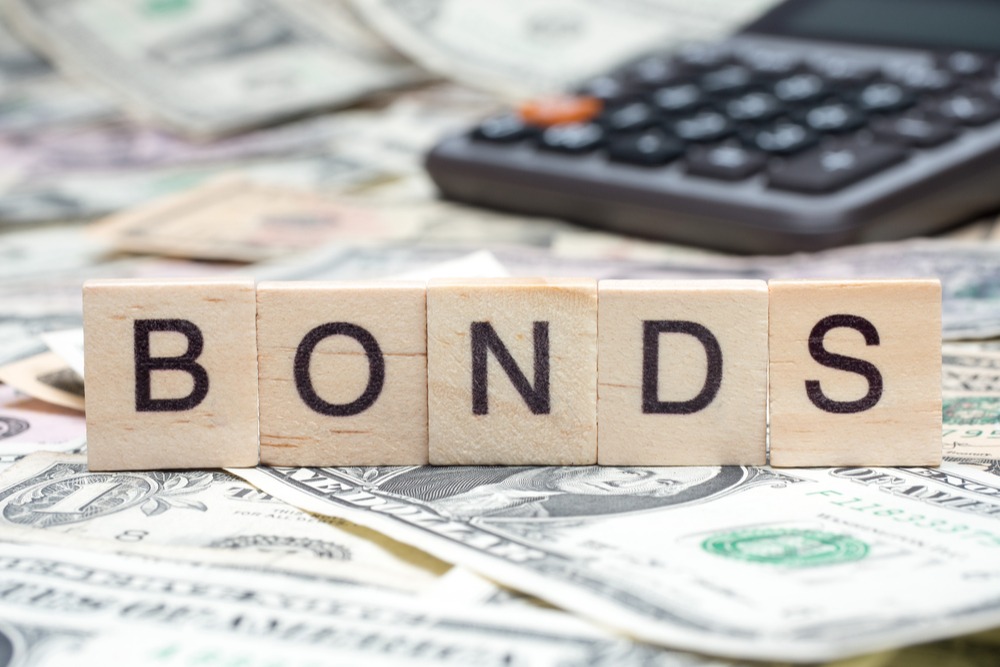Business News
Where To Invest Money In Nigeria
You’ve been considering Where To Invest Money In Nigeria because you want to enhance your wealth, make more money, or have more financial…

Where To Invest Money In Nigeria: Investments are essential if you want to increase your wealth and keep up with the rate of inflation. Cash loses purchasing power over time as a result of inflation. Therefore, if you haven’t invested in a worthwhile instrument or Business, your monthly salary savings may be losing value every day.
Investing can be extremely lucrative. even if it’s really a tiny sum. You don’t need a sizable sum of money to start investing in Nigeria at the moment. You all have a wide range of ethical financial investment options in Nigeria to grow your wealth. Even though it’s only a few thousand Naira, your investment could increase over time if cumulative earnings increase.
Even if your income will be fixed if you work a full-time job, you won’t have enough free time to invest in the stock market. When selecting an investment tool, it is usually preferable if you can invest both time and money. There are a few investment products, nevertheless, that won’t require a lot of your effort for research and analysis if you’re pressed for time.
Understanding what you invest in and why is essential for effective investing. Doing thorough research is aided by knowing the peculiarities of the asset class you are investing in. You may decide what percentage of your capital goes into what and why by doing a thorough study on various asset classes.
READ MORE: 5 Investment Strategies To Double Your Money
Where To Invest Money In Nigeria (Top 10)
1. Oil and Gas

How to invest money in Nigeria
Nigeria is one of the world’s top oil producers, but the majority of its citizens continue to live in abject poverty, according to a BBC study. That is, however, a topic for another day. The current situation is that legitimately reputable investors are earning millions of dollars every day, and if you take the initiative and invest in Nigeria’s oil and gas sector right away, you might soon join them.
A closer look at the industry reveals that practically everyone can find work there, so regardless of who you are or how much money you have, you can still invest in the sector and make a fortune. The majority of operations take place in the downstream sector, where most of us can afford to invest. The Upstream industry is mostly for large investors and multinational corporations with the resources and knowledge.
Knowing where to invest is necessary before talking about investing; the choice you make next depends on your capabilities. In other words, decide whether you can afford to build a refinery or a kerosene tank by the roadside after reading these paragraphs. You will definitely make good money no matter which strategy you choose.
How to invest in Oil and Gas in Nigeria
The oil and gas sector is the sole foundation of Nigeria’s economy. Both domestic and foreign investors see their money grow when they invest in Nigeria’s petroleum sector. Nigeria is one of the countries that produce the most oil in the world.
Here are a few areas of the petroleum business where investors can profit.
-
Oil Refinery
The most ambitious and vital component of the downstream industry is the oil refinery. One would take at least two years to build and might cost anything from $5 billion to $500 billion. As you can see, this is not an investment opportunity for those with weak hearts. Refineries require significant financial investment, rigorous physical and environmental planning, and cutting-edge technology. Investors who are willing to fork up a sizable sum of money should consider doing this if they can afford it or if there is any way they can put money together. You will get crude oil in Nigeria, refine it, and sell it locally to millions of retailers and distributors. You will also export your refined product to other African nations and even Europe, where you can earn millions of euros.
-
Fuel Importation
Here, the big men are tripping over each other to make millions of actual dollars. You too may make money legally by investing in importing. There is now a root for importation from the Niger Republic. Having a Tank Farm or collection of filling stations where the imported product can be stored is one of the key prerequisites for gasoline importation.
Fuel importation is a lucrative industry that also necessitates substantial infrastructure. You would need to have a petroleum depot in order to be able to obtain the importation license and permit. Those who are involved profit from both the selling of their products and government subsidies. You can start off little and still make a lot of money.
-
Petrol Filling Station
Billions of Naira are being made by thousands of investors each year. It is a very lucrative industry for individuals with the necessary financial funds. I once heard about a man who relied on selling tea locally to make ends meet. Over time, he saved money and constructed his first modest gas station in the neighborhood, and now he owns over ten stations spread out over several states.
-
Transport of Petroleum
This is the delivery of a service that requires moving petroleum products from one place to another. You only need one tanker to start this lucrative business, and one tanker is all you need. You can grow from a single tanker to a fleet of tanks and a sizable haulage firm.
-
Kerosene Business
The fact that kerosene can be purchased from NNPC for such a low price is one thing that most people are unaware of. You can get the product from NNPC for N300 per liter and sell it for N700 per liter. Owners of gas stations and other retailers operate in this way. Gaining N300 times 10,000 equals N3,000,000.00 if you lift 10,000 liters at a gain of at least N300 per liter.
2. Real Estate

How to invest money in Nigeria
Investment in real estate is seen as a low-risk, high-return strategy. In Nigeria, historically, long-term real estate price growth has been significant. Investors can benefit from the property by renting it out or leasing it in addition to purchasing and selling it at a greater price.
Real estate investing is constrained by the high initial investment threshold and poor liquidity compared to other capital markets. Finding a buyer and seller of real estate and selling the investment is difficult. With better liquidity and a lower investment threshold, a real estate investment trust (REIT) is a substitute for real estate. In the case of pooled investment, REITs are comparable to mutual funds.
REITs, as opposed to mutual funds, solely invest in commercial real estate assets. Earnings are earned through the purchase, sale, rental, or leasing of commercial properties, as well as through interest earned on mortgage payments for real estate. These profits are then distributed equally among the investors. On NGX, REITs are tradable.
How to invest in Real Estate in Nigeria
One of the main ways where you can Invest Money In Nigeria in order generates consistent income streams is through real estate investment. While real estate investing in Nigeria presents a plethora of chances to increase wealth and financial security, there are many pitfalls that may restrict how much you may earn. It is essential to conduct an extensive study and understand the legal aspects of real estate before you get started in order to prevent making expensive blunders.
Despite the country’s present economic crisis, the real estate industry is currently growing in Nigeria and making people millions of dollars. The most common ways to invest in real estate are listed below.
-
Real Estate Investment Trusts (REITs)
Real Estate Investment Trusts are unfamiliar to many people in Nigeria (REITs). The Securities and Exchange Commission (SEC) oversees collective investment plans known as real estate investment trusts, or REITs (SEC). These schemes pool the money from investors to buy mortgage loans, income-producing real estate, or a mix of the two.
For those who want to own rental properties but don’t want the effort of managing them, real estate investment groups (REIGs) are the perfect option. Access to financing and a reserve of funds are necessary for investment in REIGs.
A single investor may hold one or more self-contained living units in a REIT, and the investment group takes care of managing each unit on the investor’s behalf, including upkeep, advertising vacancies, and conducting tenant interviews. tenants. The business receives a portion of the monthly fee in return for performing these management duties.
-
Land/House Flipping
Investing in real estate is buying and selling properties quickly for a profit. It is among the best investments one can make, and the owner needs to put in little to no effort. You are prepared financially and are knowledgeable about land ownership and the purchasing and selling procedure. If you wanted to make hundreds of millions of dollars, you would need a lot of cash, but you could start small by purchasing just one plot and work your way up to purchasing tens of plots and acres, selling them continuously all year long.
Flipping houses involves a lot of real estate expertise, marketing, and restoration. One needs the necessary funds and the ability to supervise repairs when required for house flipping to succeed.
-
Property Development
Real estate development requires a lot of capital. In this scenario, properties are bought in desirable locations, renovated into opulent apartments, buildings for commerce, etc., and then sold at a very high-profit margin.
For instance, if you invest N300 million in building a home in a prime area, you should anticipate receiving at least N600 million when you sell it. When thinking about property development, a good site is essential.
-
The Gift of Rental Properties
Land ownership and investing in rental properties are both established traditions. After purchasing a property, you rent it to renters. The upkeep costs of the rental property are your responsibility as the landlord.
For individuals with DIY and restoration abilities and the patience to supervise tenants, investing in rental houses may be a rewarding enterprise. Even while this tactic doesn’t need much money up front, it does need a lot to pay for maintenance and cover the months when it’s empty.
3. Bonds

Where To Invest Money In Nigeria
For many investors with a modest stomach for risk, bonds are the ideal low-risk investing tool. Both the government and companies issue them to raise money. Each bond has a set maturity period and an agreed-upon interest rate. Each bond carries the possibility of default, which occurs when the issuer is unable to make the guaranteed payment on schedule. The bond’s credit ratings affect the default risk.
The highest values are given to government-issued bonds because they are backed by taxpayer funds. FGN bonds are an example of a government bond. As a result, these bonds will probably have the lowest interest rate. Bonds with poorer credit ratings are probably going to have higher interest rates.
The risk of inflation also applies to bond investments. Government-issued bonds frequently have returns that are lower than inflation, which could reduce the investment’s value. On NGX, you can trade both corporate and government bonds.
How to invest in FGN Bonds
The main purchasers of fixed-income instruments are those with low-risk profiles investing. This is because the danger of default is quite minimal, yet recently the market has seen a low-interest rate environment. Treasury Bills, FGN Bonds, Open Market Operation Bills, and other fixed-income investments used to be a shelter for Nigerian banks looking to increase their bottom line. Interest-bearing assets have been doing poorly lately.
Where can I purchase federal government bonds? A debt management organization, or DMO short, is used by the government when issuing bonds. If for whatever reason, however, interested investors wish to purchase government security, it is easily accessible on the secondary market.
-
Primary Debt Market
The DMO conducts an exercise for FGN Bonds Auctions every month. Bids for oneself and on behalf of one’s clients must be submitted at the Auctions by Primary Dealer Market Makers (PDMMs), who have been appointed by the DMO.
-
Secondary Debt Market
On the floor of The Nigeria Securities Exchange (NSE) and on FMDQ OTC Securities Exchange, licensed broker-dealers (banks and stockbrokers) conduct daily trading in FGN Bonds in the secondary debt market. For FGN Bonds, the PDMMs are required to offer a two-way quote. This implies that you are free to acquire or sell FGN Bonds anytime you see fit.
Primary Dealer Market Makers (PDMMs) are who? Banks designated by the DMO to serve as approved dealers in FGN bonds are known as PDMMs. They primarily take on, market, and distribute the FGN Bonds’ Primary Issues.
READ MORE: Top 10 Ways To Invest In Gold: A Guide for Investors
4. Mutual Funds

how to invest money in Nigeria
Mutual funds are pooled investment vehicles where an experienced fund manager manages your investment in accordance with the fund’s aim. The Asset Under Management (AUM) is the total of all investments made by different investors, and it is comprised of their individual investment amounts.
The AUM is then invested in the appropriate capital markets, such as equities, bonds, commodities, etc.
Because you don’t have to analyze the markets or keep an eye on prices, mutual funds are quite useful for people in Nigeria who have full-time jobs.
While it is important to look at the past performance of the mutual funds you are considering investing in, you should only do so for those that have done the best over the previous ten years. You should also read the prospectus of each fund to learn more about the assets, conditions, and risks they are investing in.
You can compare the returns and hazards of different funds online on financial websites, or you can consult a certified investment counselor about this. Investors can make recurring or lump sum investments after choosing a suitable fund depending on their investment needs and risk tolerance. Before selecting a mutual fund, one must be aware of its goal, portfolio, and approach.
How to invest in Mutual Funds
A smart method to diversify your financial portfolio and get a passive income is by investing in mutual funds. However, you can only get the best experience by working with the best in the business.
How to Invest in Mutual Funds in 5 Easy Steps
- Know your risk tolerance and risk capacity. Risk profiling is the process of determining the level of risk you are willing to accept.
- Asset allocation is the following phase. After determining your risk tolerance, you should try to allocate your funds among different asset classes. In order to balance the risks, your asset allocation should ideally include both debt and equity vehicles.
- The next step is to determine which funds are invested in each asset class. Based on investment objectives and past performance, you may contrast mutual funds.
- Select the mutual fund schemes in which you will invest, then submit an online or offline application.
- To guarantee that you get the most out of your investment, follow-ups and investment diversification are crucial.
READ MORE: Top 10 investment companies in Nigeria
5. Treasury Bills

Where To Invest Money In Nigeria
Regardless of the amount invested, Treasury Bills are one of the most popular investment programs in Nigeria. In this proposal, the federal government is providing short-term debt instruments. Despite being backed by the federal government, treasury bills are in fact the most liquid money market investments.
They are typically issued for a specified number of days at the basic market auction; this could be 91, 182, or 364. And the Central Bank of Nigeria sponsors it, which normally occurs every two weeks (CBN). The interest rate, also known as the stop rate at the market auction, is not fixed and often varies based on the level of demand and the amount of funding offered by the higher bank.
For example, if a Treasury bill provides a 10% annual rate and an investor wants to invest N100,000, the investor only pays N90,000 from the day of investment but receives N100,000 back at maturity. The N90,000 initial investment is referred to as the discount value, while the N100,000, the maturity value is referred to as the face value
The correct yield is the N10,000 interest received divided by the N90,000 actually paid because interest is paid ahead. That is N10,000 divided by N90,000 or 11.11 percent. However, this is larger than the annual percentage rate of 10%. When investors hold to maturity, they receive the full True Yield.
In general, if you must invest, act sensibly and carefully. Treasury Bills are a good investment and are tax-free and frequently offer higher yields than fixed deposits. This security investment is so aesthetically pleasing.
How to invest in Treasury Bills in Nigeria
Financial organizations (banks or stockbrokers) are in charge of Treasury Bills. It is necessary to fill out a form with your personal information, the amount you are willing to invest, and your bid rate in order to invest in Treasury Bills. Most of the time, the dealer determines the minimum number of Treasury Bills you can purchase.
What are the benefits of Investing in Nigerian Treasury Bills?
- It is a risk-free investment.
- They are very liquid, which means you can easily convert them to cash easily and quickly
- Interest earned is tax-free.
- One can use treasury bills as collateral for loans
- Excellent investment opportunities for disposable income
FAQ
What is Investment?
Investment is the commitment of a resource to a long-term increase in value. Investment necessitates the loss of a current resource, such as time, money, or effort. In the world of finance, investing is done in order to profit from the asset being put to use.
It is essential to comprehend what an investment is because, on occasion, it might be challenging to select the appropriate instruments to achieve your financial objectives. You can make the best decisions if you understand the significance of investments in the context of your specific financial circumstances.
You may earn money from investments in one of two ways. One is the possibility of making a profit if you invest in a sellable asset. Second, you will generate income through the accumulation of gains if you invest in a return-generating plan. In this sense, the question “what is an investment” can be answered by stating that investments are all about investing your funds in assets or things that increase in value over time or that will help generate income.
How to Invest in Nigeria’s Oil Sector
The only economic pillar of Nigeria is the oil and gas industry. When foreign and indigenous investors make investments in Nigeria’s petroleum industry, their money increases. One of the countries with the highest global oil production in Nigeria.
The petroleum industry has a number of profitable sectors for investors.
- Oil Refinery
- Fuel Importation
- Petrol Filling Station
- Transport of Petroleum
- Kerosene Business
Top 10 Investment Platforms in Nigeria
- Bamboo
- Risevest
- Trove
- Chipper Cash
- Passfolio
- Chaka
- Afrinvest
- Primary Offer App by NGX
- I-invest
- Payvest by Carbon
READ MORE: Top 10 Apps for Buying Shares in Nigeria
SUMMARY
Where To Invest Money In Nigeria
- Oil and Gas
- Real Estate
- FGN Savings Bond
- Mutual Funds
- Treasury Bills
